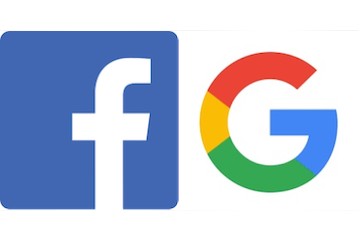Who has the power?
According to Statcounter, the real-time web analytics service, in the 12 months from January 2020 to January 2021, Google held 94.45% of the search engine market, and Facebook/Instagram combined, 72.36% of the social media market.
In response to such market domination, the Australian Treasurer, Josh Frydenberg, said on July 31 2020, "As the technology has developed and as the power, the wealth, the influence of these digital platforms, namely Google and Facebook, has grown, our regulatory framework has not kept up. As a result, there is a very unequal bargaining position between Australian news media businesses that produce original content and the digital platforms."
To address this power imbalance, the Government decided to introduce a ‘News Media and Digital Platforms Mandatory Bargaining Code’, which requires the technology giants to negotiate with Australian media companies to pay for news content and to notify them of algorithm changes.
So who has the power when the combined market capitalisation of Facebook and Google exceeds the expected 2021 Gross Domestic Product of the Australian Government by nearly $900B?
The initial response from Google and Facebook to the Code, would suggest that they both viewed the balance of power as being strongly in their favour. Google threatened to withdraw services from Australia, whilst Facebook blocked Australian users from accessing news sites, including those that provide public safety information such as emergency and public health services.
So what can negotiators who confront a power imbalance learn from the Australian Government and how it persuaded Google to enter deals where they have agreed to pay Australian media for news content?
Firstly - Gain legitimacy. This was done by having the Australian Consumer and Competition Commission conduct an independent review, which found that an unequal bargaining position existed between the news media and the digital platforms. The Government was then able to leverage the Commission’s status as an independent and expert authority. To further gain legitimacy, the Government anchored to the universally accepted principle that intellectual property is copyrighted and as such requires permission to be used from the copyright owner.
Secondly - Frame the big picture implications. To encourage the digital platforms to see global rather than local implications, the Government highlighted that the ‘Code’ would be a world first, with global ramifications, and that if Google withdrew services from Australia, then providers such as Microsoft and their search engine Bing could offer a credible alternative. Given that the CEOs of both Google and Facebook, Sundar Pichai and Mark Zuckerberg respectively, requested meetings with the Government, it would appear that both were very much aware of the potential for global precedents to be set.
Thirdly - Find ways to maintain the power balance. To maintain a more even balance of power the Code provides for Australia news media to negotiate either individually or collectively. If the parties cannot reach an agreement after three months of negotiation, they can go to a binding arbitration to resolve the issue of payment or remuneration. The Code also prohibits digital platforms from discriminating against Australian news media which are covered by the Code, and has substantial penalties for breaches, with maximum penalties of up to $10 million per breach; three times the benefit obtained; or 10 per cent of annual turnover, whichever is greater.
Finally, and in the case of Facebook, the decision to block Australian users from accessing news sites, including those that provide public safety information, is highly likely to backfire. By denying access to critical safety news, Facebook will likely be seen by users as failing the test of what is in the public interest, which may ultimately result in users being motivated to delete Facebook, at the same time strengthening the Australian Government’s determination to stand firm.
Self-coaching tips
- Gain legitimacy by referencing a credible authority and by anchoring to universally accepted principles.
- Draw the other party to the realisation that you have credible options without them, and that reaching agreement is more attractive than the implications of not reaching agreement.
- Build in dispute resolution processes that include consequences for any breaches of the agreement.

